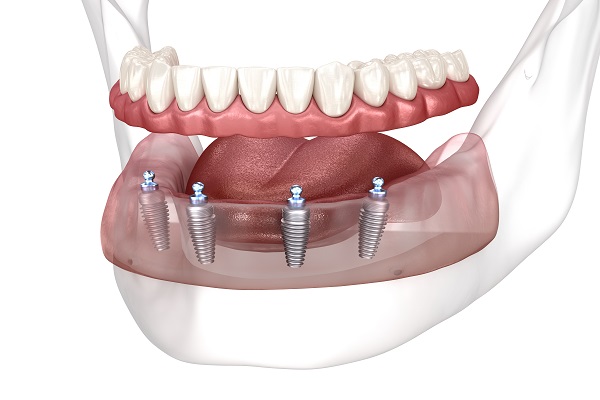 Dental implant surgery is one of the most reliable and long-lasting ways to replace missing teeth. However, since this surgery involves inserting an artificial tooth root into the jawbone, it almost always causes some amount of pain. Before undergoing this surgery, many dental patients are worried about the level of pain they may experience afterward and how long it will last.
Dental implant surgery is one of the most reliable and long-lasting ways to replace missing teeth. However, since this surgery involves inserting an artificial tooth root into the jawbone, it almost always causes some amount of pain. Before undergoing this surgery, many dental patients are worried about the level of pain they may experience afterward and how long it will last.
What is involved in dental implant surgery?
In order to understand how painful the implant process may be, it is helpful to realize what happens when a patient receives an implant. In many cases, after a patient has a natural tooth removed, but before an implant is placed, the area is prepared with a bone graft. These grafts encourage the production of new bone, which will strengthen the jawbone and help ensure the implant properly integrates with the bone.
In dental implant surgery, a patient's dental professional drills a hole into the jawbone. A metal post is placed into the hole. This metal post works as an artificial tooth root. The post needs to be given time to osseointegrate, or to allow the bone from the patient's jaw to grow through it. Although this process may often take months, it is essential for a healthy and stable implant. The abutment, which is a component to which the dental crown will be attached, usually is not placed on the post until osseointegration is complete.
Sometimes, the dentist needs to perform a smaller surgery to place the abutment. This is a minor surgery that only involves the gums. It may cause some bleeding and swelling, but pain from having the abutment placed is less severe than any pain experienced after placing the metal post.
How painful is the implant surgery?
Dental implant surgery involves trauma to both the gums and the jaw. The surgery itself should not involve any pain since the mouth will be numbed. As the numbness wears off, though, patients will often feel some level of pain.
Many dental professionals provide pain medication to help manage discomfort at the implant site. In some cases, post-surgery pain is mild enough that it can be managed with over-the-counter pain medication. Generally, a single implant will cause less discomfort than a surgery where multiple implants are placed. Patients will usually have pain up to 10 days after the procedure, but the pain may resolve before 10 days.
If excessive discomfort persists after the 10-day point, it is important for patients to contact a dental professional immediately. Prolonged pain may be a sign that the implant site has become infected. If this is the case, the dental professional will need to act quickly to save the implant.
Check out what others are saying about our dental services on Yelp: Dental Implant Surgery in Austin, TX.
Conclusion
No dental patient looks forward to any type of pain. However, persons considering dental implant surgery should not let a fear of post-surgery discomfort discourage them from pursuing the procedure. Implants are designed to be a permanent tooth replacement, and once completed, the implant process will leave a patient with a beautifully restored smile.
Request an appointment or call MM Family Dentistry at 512-477-9775 for an appointment in our Austin office.
Recent Posts
Considering All-on-4®? Also known as implant-supported dentures, this tooth replacement option is one that combines the use of dental implants with dentures. Most are familiar with dentures and how bulky they can be within the mouth. It is easy to shy away from dentures due to the awkwardness of a sliding oral appliance. On the…
Gum disease is often hard to avoid; however, once it is detected, patients can immediately visit their general dentist for a diagnosis and treatment plan. In order for it to be detected, the dentist will have to rely on any symptoms or signs that indicate a problem. Ready to learn more about the signs?Sometimes when…
Invisalign® is one of the most common treatments used to address teeth straightening problems. General dentists recommend Invisalign® quite frequently due to the many associated benefits and ease of the treatment process. One thing to know about Invisalign® is that it cannot address all orthodontic issues. However, it is a great option for misalignments and crowding, both of…


